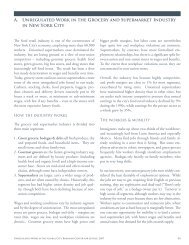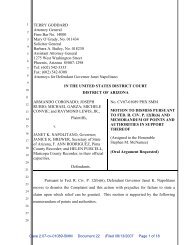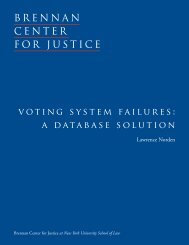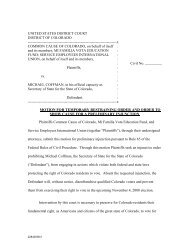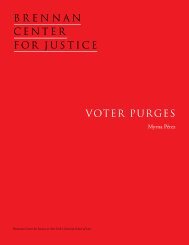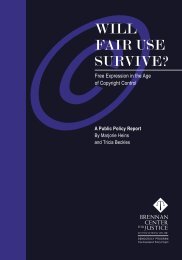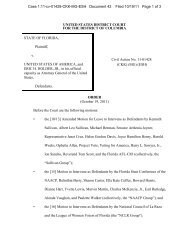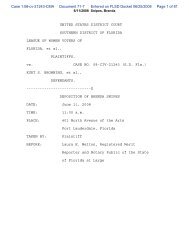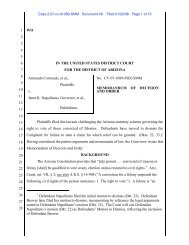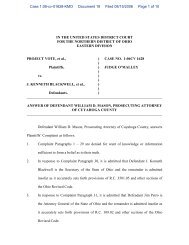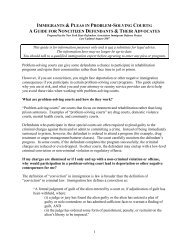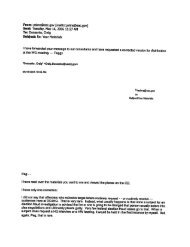MEMORANDUM OF LAW IN SUPPORT OF PLAINTIFFS' MOTION ...
MEMORANDUM OF LAW IN SUPPORT OF PLAINTIFFS' MOTION ...
MEMORANDUM OF LAW IN SUPPORT OF PLAINTIFFS' MOTION ...
- No tags were found...
Create successful ePaper yourself
Turn your PDF publications into a flip-book with our unique Google optimized e-Paper software.
Not one state has legally-mandated restrictions as burdensome as those imposedon Connecticut’s multi-town districts. In the four of the five states where primaries arenot required, state law requires that when parties choose a primary, access to that primaryballot must be by payment of a fee or by petition – not by the decision of party leadershipor by a cumbersome process that forces candidates to run several campaigns just to get onthe ballot. See 50-State Chart. 14Connecticut’s outlier status among the 50 states and the District of Columbiademonstrates that the burdens imposed by this system are “unduly harsh.” SeeRockefeller, 917 F. Supp. at 160.b. The number of primary elections – including a comparisonbetween single-town and multi-town districts – demonstratesthe severe burden placed on disfavored candidates.Courts regularly look to a state’s electoral history when reviewing the burden ofballot access laws. A critical factor in that electoral history is the number of candidateswho have been able to obtain ballot status, which in Connecticut often translates intowhether there is, in fact, a primary. See Storer v. Brown, 415 U.S. 724, 742 (1974)(evidence that candidates rarely qualify for the ballot may demonstrate burdens);Molinari v. Powers, 82 F. Supp.2d 57, 70-71 (E.D.N.Y. 2000)(noting that the very fewcandidates who had even attempted to compete in New York’s Republican primarydemonstrated burden); Rockefeller, 917 Supp. at 157-59 (same). See also Green v.state legislature: $15 filing fee or petition with signatures totaling 5% of the vote cast forthe winner of that office in the last general election); N.C. Gen Stat. §§ 163-107(a), 163-107.1 (in lieu of paying a 1% of salary filing fee, for all non-statewide offices: 10% of theregistered voters in the district but for statewide office only 10,000 signatures of partyvoters); Okla. Stat. Ann tit. 26 § 5-112 (payment of filing fee or a petition signed by 5%of the registered voters eligible to vote for the candidate).14 Utah’s statutory regime makes no provision for how candidates will gain access to theparty primary ballot. See 50-State Chart.28



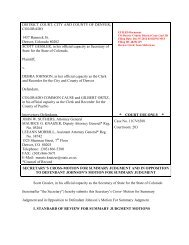
![Download the Letter [PDF] - Brennan Center for Justice](https://img.yumpu.com/50139248/1/190x245/download-the-letter-pdf-brennan-center-for-justice.jpg?quality=85)
